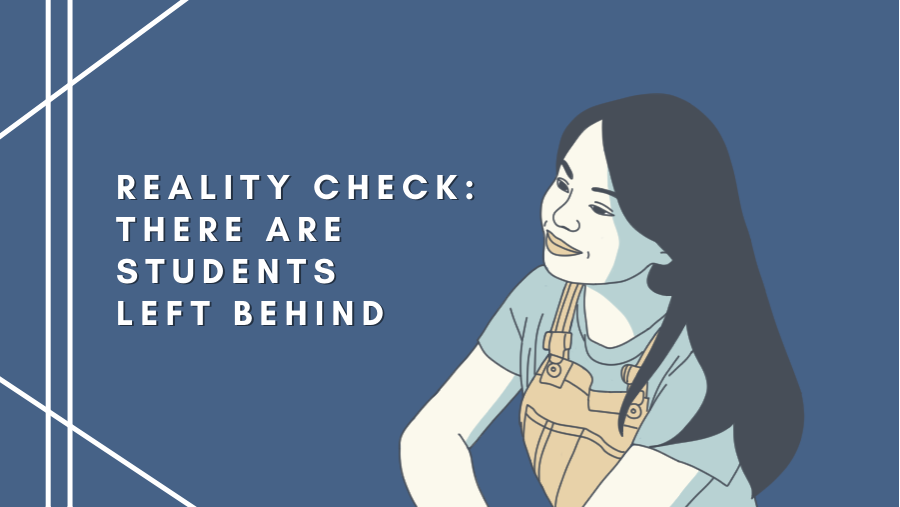
PH volleyball setting aside some main guns
October 13, 2021
Are all feelings VALID?
November 5, 2021Reality Check: There are students left behind

If there is one stereotype that I would like to debunk before this year ends, it is that online classes are easier. I often hear and read statements about how convenient it must be for students to study at home. You get served warm food, take a nap, and play games or binge-watch whenever you like.
Everyone seems to be stuck on the idea that everything’s normal and that the only obstacle present is keeping up with the deadlines. Sadly, only the students know the truth.
Two years into this virtual learning setup has taught me how deadlines are just one of the many challenges an online learner like me can ever experience. The impression that all students who study at a private school are wealthy is another stereotype that we need to break.
Initially, the university required one desk per student, a strong internet connection, and one device. When concerns of lack of internet connection and gadgets were raised, students were told to be resourceful.
But how can a student with no resources be resourceful?
Back then, the sudden shift to online classes was already a nightmare for my family. Our phones are old, we did not have wifi, and the only space we have is a single room that my mother, younger sister, and I share. As if to add fuel to the fire, we were even instructed to have a backup plan in case of internet connectivity problems, power outages, or device failure.
This made me rethink the university’s mantra—are there really no students being left behind?
I remember feeling so helpless that I contemplated taking a year off from school then working to help support my younger sister’s education.
Besides the lack of resources, we also have an unbelievable amount of workload. Professors would tell us to double the effort but on behalf of the students, I can say that we are working past our limits.
Last July 30, the School of Business and Accountancy College Student Council (SBA-CSC) arranged a formal discussion with the administrators to address this issue in line with the University Student Council’s (USC) five-point demand. However, even the professors find it difficult to comply with the said agreement because the amount of units does not conform to the number of days in a semester.
From a race with infinite requirements, everything suddenly became a race with time.
Another challenge of this setup is communication. The internet connection problem is a given but in this day and age, most of the students are already working either remotely or face-to-face. For group work, we have to arrange our schedule to fit theirs. We cannot blame them for doing both at the same time. As much as school is a priority, how we survive in this pandemic tops it all.
In this generation, being able to focus only on education is a privilege.
With all of these combined, it is inevitable for health to be affected in all aspects. Mental conditions such as anxiety, burnout, and depression became one of the norms in this so-called ‘new normal’ way of life. We may be excelling academically, but we are failing in life.
I never knew just how precious our life at school was before the pandemic happened. Homes, which were once our safe haven, can become suffocating at times. Our friends and classmates, whom we could see whenever we wanted, have been treasures that we took for granted.
Now with the apparent decrease in the number of COVID-19 cases in the Philippines, rumors of colleges in all courses opening their doors next year are looming. In this draining reality of distance learning, will this finally be our salvation? Or is this an addition to the difficulties that will test our resiliency?
LAYOUT BY: Sigrid Deryll Q. Dy


